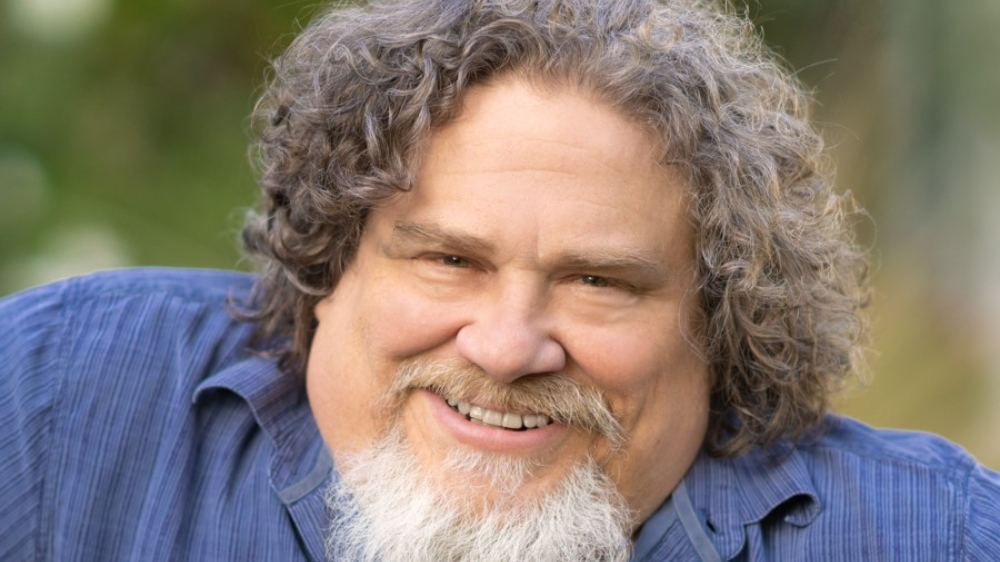
The Academy of Motion Picture Arts and Sciences recently launched Art of the Documentary, a new Academy Originals podcast hosted by Oscar-nominated filmmaker Jim LeBrecht, who co-directed the acclaimed documentary Crip Camp with Nicole Newnham.
Executive produced by Barack Obama and Michelle Obama, Crip Camp won the Audience Award at the 2020 Sundance Film Festival before going on to earn an Oscar nomination for Best Documentary Feature.
But even before Crip Camp was showered with kudos, LeBrecht was a very accomplished and impressive individual. He began his career as a Sound Designer at the Berkeley Repertory Theater, which eventually led to him doing sound design for film. He’s also the founder of Berkeley Sound Artists and the co-author of Sound and Music for the Theater: The Art and Technique of Design with Deena Kaye.
LeBrecht specializes in the wondrous world of documentary film, which has expanded greatly over the past two decades, and has become something of a calling for LeBrecht, whose résumé boasts over 145 credits, including Minding the Gap, The Devil and Daniel Johnston, The Kill Team, and The Most Dangerous Man in America: Daniel Ellsberg and the Pentagon Papers, just to name a few.
LeBrecht has also worked on narrative movies like The Skulls and Swimfan, but it was his experience working on so many high-profile docs that made him the perfect person to host Art of the Documentary for the Academy. The first season is comprised of six episodes featuring celebrated documentary filmmakers such as Danny Cohen (Anonymous Club), Bing Liu (All These Sons and Minding The Gap), Chase Joynt and Aisling Chin-Yee (No Ordinary Man), Kirsten Johnson (Dick Johnston Is Dead and Cameraperson), Garrett Bradley (Time), and Roger Ross Williams (Apollo, Life Animated, and more), among others.
The podcast offers illuminating discussions about how documentary filmmakers approach the creative process, which is often very different from narrative filmmakers. Lebrecht’s forum is geared toward people who are interested in documentaries and who are possibly thinking about a career in the art form.
Below the Line recently hopped on Zoom to catch up with LeBrecht, who talked about Art of the Documentary, why the podcast excites him, and why it should excite film fans of all stripes.
[Note: The transcript below has been edited for clarity.]
Below the Line: Please tell us a bit about your background.
Jim LeBrecht: I’ve been a Sound Mixer for independent films and working in film for over 30 years. I started my own business (in the Saul Zaentz Film Center in Berkeley) and I wanted to serve independent filmmakers, to provide quality audio post that is [also] affordable. I didn’t have the best equipment but no one could care more than I do and I instilled that [passion] with the people I worked with.
BTL: Please tell us about moments that opened your mind with regard to the power of documentary film.
LeBrecht: There are stories about films I’ve mixed that are really important, like when I mixed Minding the Gap with Bing Liu. Bing is the most unassuming, brilliant person I’ve ever met and this was his first feature-length documentary. We were in [a] spotting session and there’s the POV of him walking up to the home that he lived in for a number of years. I could hear the shotgun mic on the camera rattling a little bit [because it] wasn’t screwed down tight enough and I said, ‘We’ll just replace all of this — footsteps, background…’ and he said ‘Don’t. This is the first moment in the film in which I’m revealing myself as the filmmaker, so this imperfection is an important indication of that.’
BTL: That’s an interesting example. So how did you get involved with the Academy?
LeBrecht: I became involved with the Academy after being nominated [for an Oscar]. Crip Camp increased my visibility. The opportunity came up to do this podcast because I was very vocal about my passion for this subject. I had worked with so many directors and knew there were so many interesting stories to tell.
BTL: How did you select the interview subjects?
LeBrecht: [It was] a wonderful collaboration between me and the Academy. They introduced me to No Ordinary Man and Anonymous Club — those films and filmmakers. Bing was someone who I really wanted to talk to. I had met Kirsten Johnson, and also, Nicole and I, [while] making Crip Camp, we had met Garrett Bradley. They also suggested Roger Ross Williams — I knew of him but I didn’t really know him or his work that well until now. We had a spreadsheet — people I was interested in, people they were interested in. May we get a Season 2 someday.
BTL: What can listeners expect to take away from Art of the Documentary?
LeBrecht: I hope that people leave the podcast with a new understanding and appreciation of documentary film and that it broadens their perception in a way that opens them to the story, the heart, and the creativity [of the form]. Documentary film is not a craft, it is heartfelt and hard work that changes people’s lives.





